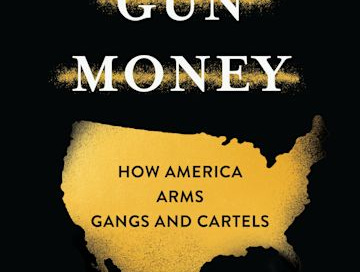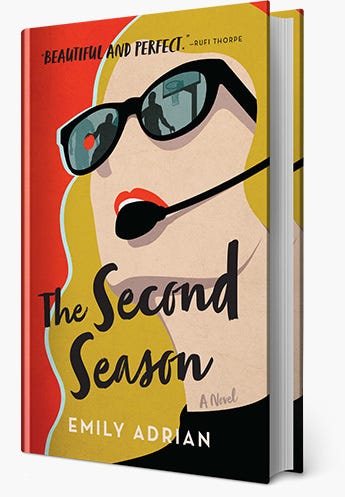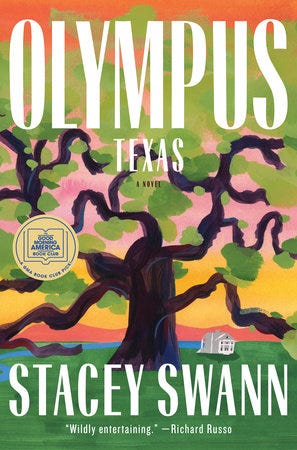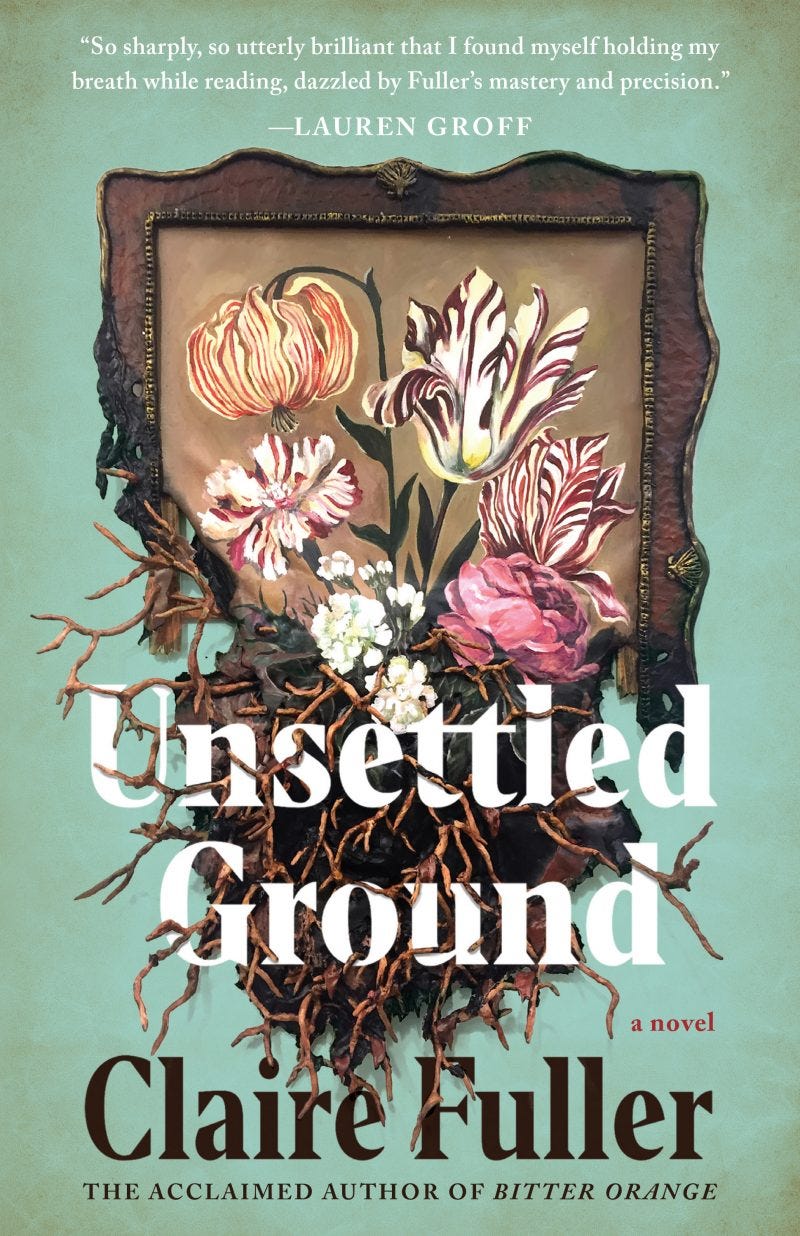Welcome to the June 2021 Reading Round-Up. Each month, I write about the books I read and rank them from worst to best. A refresher on my rating system can be found here.
June was a slower reading month for me. Due to a combination of work, LSAT, and seeing friends I was only able to finish 5 books, which is less than my normal. Nevertheless, I still was able to fit in 4 interesting fiction reads, and one stand-out non-fiction book that was one of the most thought-provoking works that I have read in a long time.
5. Rock the Boat - Beck Dorey-Stein
Fiction, 356 pages
Told in alternating perspectives, Rock the Boat follows Kate, Miles, and Ziggy; three childhood friends who, now in their mid-thirties, all find themselves back home in Ships Harbor, New Jersey. Each is dealing with something different. Kate's long-term boyfriend has just broken up with her, forcing her to leave her privileged life in New York and return home to live with her parents while she figures out her next steps. Miles comes home after his mother, a business tycoon in their beach town, threatens to cut her son out of his inheritance. Ziggy is the only one of the friends who never left, but is dealing with the sudden death of his father and the maintenance of a plumbing business that is deeply in debt. Over the course of the summer the three friends reconnect and try to work on the issues that led them there in the first place, while also healing and moving forward.
I requested an advance copy of this book because I recognized the author, Beck Dorey-Stein, who previously wrote about her time working as a White House stenographer in From the Corner of the Oval. While I enjoyed her latest work, I do think that the writing served mostly to move the plot forward and wasn't as skilled as it could have been. There were also a few basic fact checking issues, like when she writes that Kate left New York by crossing the Delaware River into New Jersey. Overall, however, the book served its purpose and was a quick, light, enjoyable read.
Rating: 7/10
Thank you to Penguin Random House for the advance review copy.
4. The Second Season - Emily Adrain
Fiction, 300 pages, release date July 27, 2021
The Second Season follows Ruth, an NBA sideline reporter in her early forties who dreams of being promoted to the network's color analyst position. Ruth is qualified. She played basketball in college and has been calling games nearly ever since. She possesses an almost encyclopedic level knowledge of the game, and is highly respected by sports journalists and players alike. However, no woman has ever been a full-time color analyst before, and despite Ruth's credentials, that fact doesn't seem to be changing any time soon.
The book takes place during the NBA finals, amidst the backdrop of a rivalry between two players who had been like brothers before one was traded to another team. Ruth's life plays out in the microcosm of the championship weekend. Her insecurities about her role as a mother, her relationship with her boyfriend, the discovery that she might be pregnant, and the sudden opening of an analyst role that Ruth wants all take place over the span of a week. Ruth has a lot going on, and as a result, sometimes her issues felt like they were filler stereotypes of the working woman trope. In addition, I kept expecting the rivalry that was playing out on the court to translate into something specific in Ruth's life, rather than just act as a side story, but it never materialized. Despite this, the book was fast paced and quick to get through, and provided interesting commentary about sexism in sports from a different perspective.
Rating: 7/10
Thank you to Blackstone Publishing for the advance review copy.
3. Olympus, Texas - Stacey Swann
Fiction, 336 pages
Olympus, Texas opens as March Briscoe returns to his hometown of Olympus following a two-year exile for having an affair with his brother’s wife. He returns to a family that has been treading water since he left, with everybody stuck in mediocre relationships that rely on history more than meaning to keep them together. The only person doing seemingly well is March’s half-sister, Artie, but when a shocking and unexpected tragedy strikes halfway through the book, even those assumptions are questioned. Olympus, Texas is a modern retelling of Greek mythology. Although you do not need to be familiar with the common plot lines of Greek myths, I do think being able to connect some of the dots does add meaning or interest to a book that can otherwise feel somewhat dragged out. The reviews I had seen for this book advertised it as funny and dramatic, which may have overstated their presence. However, I did appreciate the book for its descriptions of life in a small town in Texas, which is so unlike anything I have ever experienced.
Rating: 7.5/10
2. Unsettled Ground - Claire Fuller
Fiction, 330 pages
Set in a rural village in the English countryside, Unsettled Ground tells the story of Jeanie and Julius, two twins in their early fifties who still live in their childhood home with their mother, Dot. When Dot dies of a stroke, Jeanie and Julius must suddenly grow up and fend for themselves. However, Jeanie and Julius are far from self-sufficient, especially Jeanie who can barely read or write and has been kept at home her whole life after her mother told her that she had a rheumatic heart condition that prohibits normalcy. Facing eviction and struggling to pay back debts that their mother had secretly owed, Jeanie and Julius are forced to confront an entire life that might not have been as it seemed.
Undoubtedly, the strengths of this book rest in the talents of Claire Fuller and her writing style. Fuller writes in rich, detailed prose, with every setting lushly described and every character intimately developed. Where I struggled with this book was the general depressed and hopeless mood that I felt was evinced in particular by Jeanie. The suddenness that Jeanie is forced to become an adult feels almost brutal, despite the fact that Jeanie is middle-aged. In a way, it felt like it would have been better for Fuller to make her characters a decade or two younger - still old enough to illustrate the stuck-in-time qualities that Fuller was going for, while also making the predicament potentially more realistic. Indeed, Fuller may have been halfway there already, given that every time that Jeanie or Julius thought back on their past they jumped immediately to their early childhood, never once describing a memory from the thirty-five plus years in-between. Nevertheless, I enjoyed Fuller's latest book if not for the plot, but for the rich and detailed characters and setting that Fuller created.
Rating: 7.5/10
Thank you to Tin House for the advance review copy.
1. Blood Gun Money - Ioan Grillo
Non-Fiction, 400 pages
This was by far and away the best and most fascinating book I read this month, and is up there for one of the best books I’ve read this year. Ioan Grillo is a British journalist who writes for the New York Times based in Mexico City, Mexico. He has spent years covering the violence of organized crime, cartels, and gangs in Mexico, Central and South America. A crucial part of his coverage that is distilled in this book is where and how these organizations get their guns. The answer is simple. Because of lax gun restrictions, a crippled ATF, and poor enforcement, nearly all of the guns come from the United States. In one shocking section, Grillo writes about straw purchasers - people who can easily pass background checks if there are any even required - who walk into gun stores or gun shows and buy fifty or more semi-automatic weapons at a time and then walk out and sell them to the closest gang or cartel for a high-markup. Although this might seem crazy, there is very little that can be done about this under our current legal framework because of all the legal loopholes that make it perfectly legal to buy and sell high-grade and high-capacity weapons with abandon. The ATF, the agency tasked with investigating and taking down gun traffickers and people selling to organized syndicates, has been intentionally stripped down by conservative lobbyists and lawmakers so as to make basic tasks, like tracking guns used in crimes, extremely inefficient and time consuming. High profile scandals, such as Fast and Furious, have allowed criticisms of the agency to be used as justification for ignoring simple fixes, (like allowing records to be digitized in a single database, something that is shockingly currently not allowed), instead of working to make the agency more effective at stopping illegal transfers of firearms.
With constant talk about a crisis on the southern border, I think that Grillo makes compelling arguments about the ways that gun laws in the United States contribute to and in many ways exacerbate the issues that people are trying to flee. By inadvertently supplying so many guns, we are contributing to immense violence and impossible living conditions. Although the United States also has lots of guns and has a serious issue with gun violence, the homicide rates or random ambushes are not nearly as high as those in say, Honduras or Tijuana, Mexico. Grillo posits that this is the case only because of the strength of our institutions, and if we continue to degrade them then we too will become susceptible to a breakdown in standards of safety.
Rating: 9/10
If you like what I’ve written or want to see more reviews, recommendations, and round-ups about a wide range of novels, histories, and more, consider subscribing now by entering your email. It’s free and it’s about books. What’s not to like?
Want to see last month’s round up? You can find that here.







